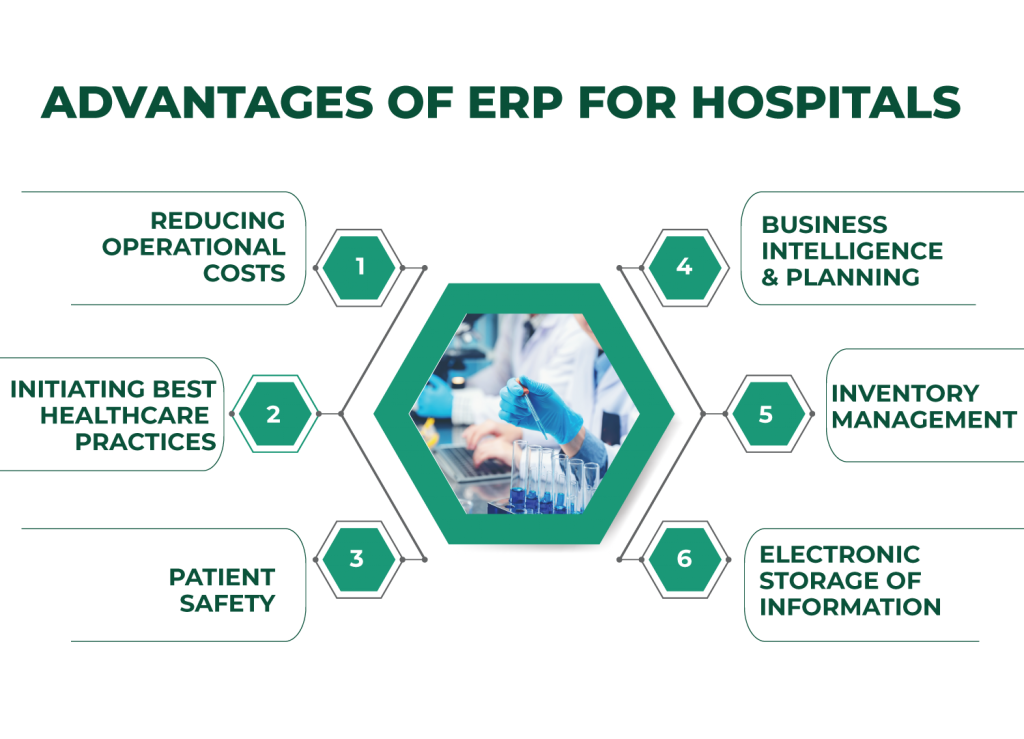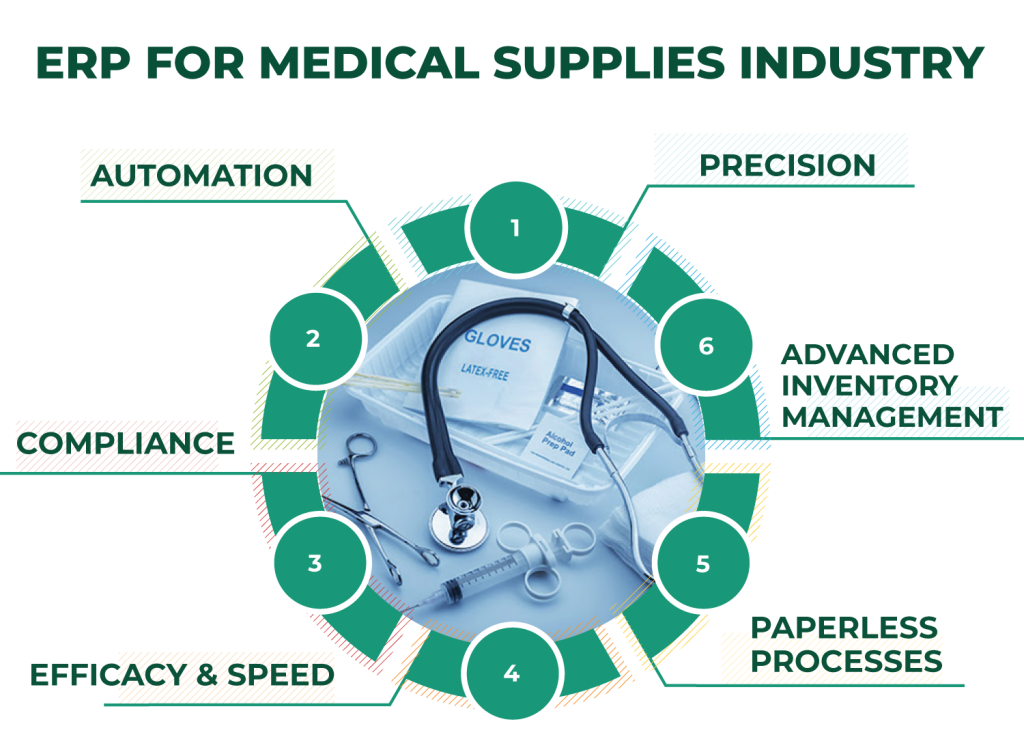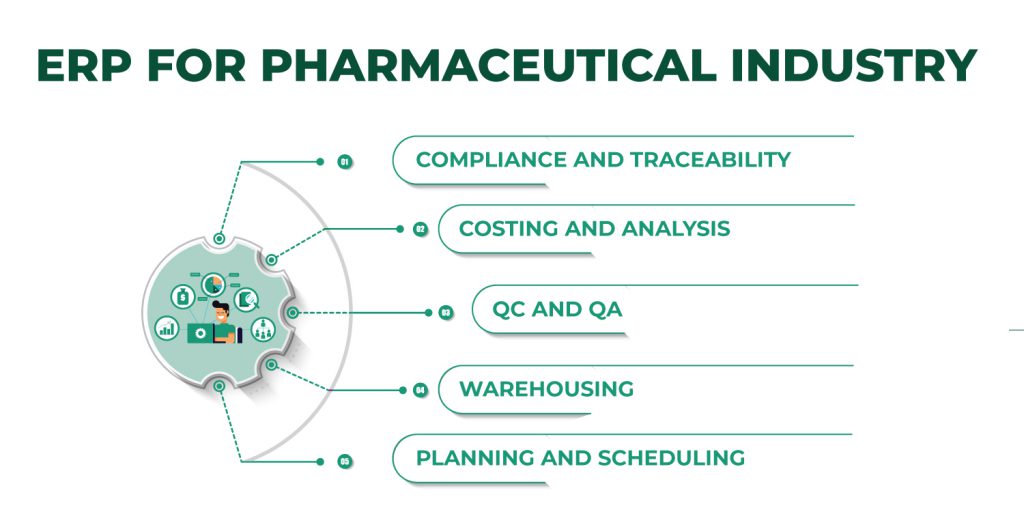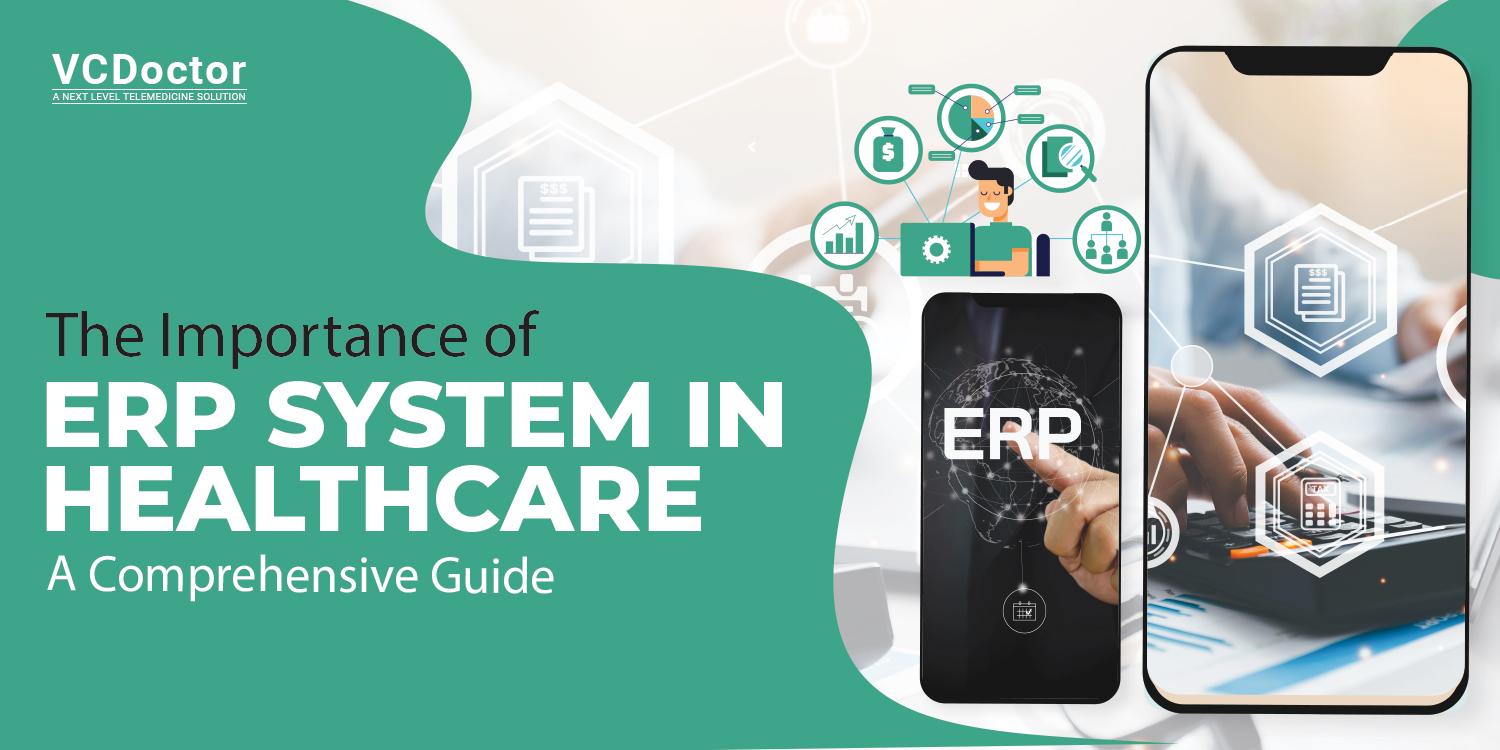The Importance of ERP System in Healthcare: A Comprehensive Guide
Healthcare must be efficient to deliver effective medical care. Doctors require quick access to patient data, and staff need straightforward ways to manage their tasks. Patients expect better care and smoother experiences. An ERP system makes this possible by putting all information in one place. It eliminates the need to search for files and reduces delays, making billing easier and improving schedule management. Moreover, it helps in making better decisions and cutting down costs. Now, hospitals can focus on patients rather than paperwork with a smooth workflow.
ERP stands for Enterprise Resource Planning. While it may sound complex, it simplifies operations. It links all parts of a hospital, from patient records to inventory and billing to appointments. So everything works together seamlessly. This integration improves efficiency, saves time, and reduces expenses. In this blog, we will explore how ERP systems help healthcare. We will see how they improve patient care and make work easier for doctors and staff.
Table of Contents
- What is ERP and What Are its Functionalities?
- Market Demand for ERP System
- What is the Importance of ERP in Healthcare?
- Advantages of ERP for Hospitals
- ERP for Medical Supplies Industry
- ERP for Pharmaceutical Industry
- What ERP, Do Hospitals Use?
- Final Words
- FAQs
-
- 1. Mention the significance of ERP systems in the healthcare sector?
- 2. What are the uses of ERP systems in healthcare?
- 3. What kind of businesses are using ERP systems?
- 4. How do ERP systems help businesses worldwide?
- 5. List some challenges of ERP systems in the healthcare industry
- 6. What factors affect the overall cost of ERP implementation and maintenance?
-
What is ERP and What Are its Functionalities?
ERP is a systematic approach to unite, streamline, and conceptualize the business methodology of the organization in different zones and segments. ERP works on the consolidated system platform by utilizing a single company database.
Enterprise Resource Planning simplifies the tasks of human resources, finance, distribution, procurement, and other channels of the company. With the successful implementation of ERP software, the process becomes more smooth and it happens to be cost-effective.
Market Demand for ERP System
According to market research, the global ERP software market size stood at USD 54.76 billion in 2022. This sector is believed to grow at a compound annual growth rate of 11.0% from 2023 to 2030. Currently, it has been observed that through the introduction of P2P, organizations have endeavored to look for operational efficiency in the various business processes.
One realizes that there is an ever-increasing need for organizations to make decisions based on data that ERP systems make available. Further, the increased demand for mobile and associated cloud applications is acting as a driving force for the market. These trends are making organizations consider spending on ERP software to retain competency and increase organizational performance in the challenging market.
What is the Importance of ERP in Healthcare?
Enterprise resource planning (ERP) is a crucial tool for companies that rely heavily on supply chain and logistics management. In the healthcare industry, ERP is essential for managing multiple units and departments that require continuous updates and synchronization for efficient workflow.
Beyond the doctors and patients, the healthcare industry also involves managing medical supplies, inventory, pharmacy, patient relationships, staff, and doctor management, billing and payments, revenue cycle management, supply chain management for pharmaceutical manufacturers, and more. To ensure an organization’s efficient operations, all these components need to be reviewed and updated in real-time.
By implementing a good ERP system, healthcare organizations can maintain coherence among their various departments and modules, leading to better client/patient relationships and improved profitability. ERP can significantly improve business operations and facilitate growth for healthcare organizations in the future.
Advantages of ERP for Hospitals
Enterprise Resource Planning (ERP) can bring numerous benefits to hospitals, including reducing operational costs, initiating best healthcare practices, enhancing patient safety, providing business intelligence and planning, managing inventory, and electronic storage of information.

Reducing Operational Costs
ERP software automation can improve the alignment of various units such as staff management, payroll, accounting, patient care, billing, and more. Consequently, it can free up resources, improve communication, and lower costs.
Initiating Best Healthcare Practices
By integrating important facilities, hospitals can initiate some of the best practices for patient care. It can enhance coordination and collaboration between different specialty departments such as radiology, OPD, and emergency services can offer better services.
Patient Safety
An ERP program aids enhances patient safety as well. It streamlines communication between doctors and patients, establishing a culture of patient wellness at every level from registration to checkout.
Business Intelligence and Planning
ERP helps identifies problem areas and targets them, improving overall performance. Top management can monitor and evaluate the effectiveness of the current policies using an ERP system. It also can be an effective business intelligence tool to compute and evaluate operational effectiveness and provide details on spending, requests, and patient visits.
Inventory Management
A hospital’s inventory comprises various medical items. Managing sales, supplies, and refills is not easy. An ERP system makes inventory control click easy. With an ERP business owners can automate expiry alerts – enabling them to take action on time It is simpler to estimate and plan a reorder with the supplier.
Electronic Storage of Information
To maintain the security and privacy of all the data, hospitals need to store a vast amount of information pertaining to patients, their contact details, visit details, billing details, and more. ERP software for the healthcare industry can help store all this information safely and securely. With an ERP system, users can easily update all the data entered into the application.
ERP for Medical Supplies Industry
Medical equipment manufacturers must maintain compliance with regulatory bodies, making an efficient ERP crucial for the industry. Here are some of the advantages of ERP for the medical supplies industry:

Automation
ERP systems automate data entry, reducing time, effort, and errors in the system. This feature allows teams to work efficiently and focus on more profitable tasks.
Compliance
The FDA provides Quality System Regulations (QSR) that encompass device design, validation, manufacturing procedures, investigations, and device performance assessment. ERP helps medical device manufacturers track manufacturing, purchasing, paperwork, and product traceability, ensuring successful quality management of medical devices.
Efficacy and speed
Speed and efficiency are essential in the medical device manufacturing industry, particularly in meeting the instant demands of medical equipment. ERP can boost performance and productivity throughout the whole supply chain.
Paperless processes
ERP’s automation feature helps companies manage multiple tasks effortlessly and get rid of outdated methods, ensuring the accuracy of information.
Advanced inventory management
Inventory management is essential for consistent supply, and ERP helps get insights for forecasting, order processing, and managing stock, contributing to the industry’s respite.
Precision
For medical device manufacturers, the quality of their products is critical for patient care. ERP features like batch tracking, stock management, audit trails, and real-time order updates help ensure quality assurance and traceability. Advanced ERP solutions can help manufacturers achieve this.
Find Experts to Build Your Custom White Label Telehealth
ERP for Pharmaceutical Industry

An ERP system for the pharma manufacturing sector can streamline manufacturing procedures and expedite distribution while being compliant with strict FDA regulations. Here is a list of advantages of ERP for the Pharmaceutical Industry
Compliance and Traceability
An ERP can dynamically adjust formulas to achieve cost and physical target parameters, create audit reports compliant with master batch records, and draft traceability reports.
Costing and Analysis
Pharma companies need to optimize resource utilization for MRP planning and monitor fixed, tired, and variable labor costs to control costs. An ERP system lets them dynamically adjust recipes to meet cost target values.
QC and QA
Pharma manufacturing needs quality control, and an ERP system can create libraries for customized instructions, inspection checklists, and quality control.
Warehousing
With the aid of ERP, businesses may carry out pick, pack, shipping, receiving, and put away duties inside the warehouse while reducing errors and rework and obtaining crucial data.
Planning and Scheduling
Companies must plan and schedule resources for the production cycle to ensure on-time delivery, and ERP can track resources, manage production schedules, and control material requirements planning (MRP).
What ERP, Do Hospitals Use?
The section contains a list of the Enterprise Resource Planning (ERP) Software that a hospital must use.
1. Evident
Evident is the ERP solution that provides advances in EHR solutions to rural and community healthcare organizations. It offers healthcare records with combined support, etc.
2. Healthland
Healthland software builds a health-based IT system for the community, rural, and inpatient psychiatric hospitals. It is an EHR-based health solution that boosts telehealth rapidly.
3. Infor
This suite is majorly known for its hospital and patient information, health plans, medical benefits, and for its ERP solution that offers human capital management, etc.
4. Meditech
Meditech has an integrated ERP solution that can help in the management of reimbursements & medical billing, decreasing supply chain costs, deploying profitable teams, etc.
Final Words
These are the few benefits & importance of ERP solutions for the healthcare industry. Many businesses have started applying this mechanism to their work for driving thriving business opportunities and desired business growth. Simultaneously, the work has now been more streamlined with the help of Enterprise Resource Planning solutions.
VCDoctor telemedicine solutions have a wide range of effective solutions for your business. We deliver efficient solutions with ultimate customer satisfaction. Get in touch with our experts today and discuss your requirements!
FAQs
1. Mention the significance of ERP systems in the healthcare sector?
ERP systems in the healthcare sector are designed and developed to operate and manage the ongoing financial process. It tracks the overall income, expenses and assets of a business.
2. What are the uses of ERP systems in healthcare?
Some primary uses of ERP systems in healthcare include promoting efficient use of resources, organizing information for easy accessibility, and providing insights into accounting and finance information.
3. What kind of businesses are using ERP systems?
Some significant industries where ERP systems are widely used are healthcare, pharmaceutical, manufacturing, e-commerce, and nonprofits or governments.
4. How do ERP systems help businesses worldwide?
ERP systems help businesses streamline workflows, automate processes, make faster decisions, track orders, manage inventory levels, streamline procurement, and optimize products.
5. List some challenges of ERP systems in the healthcare industry
Some major challenges of ERP systems in the healthcare industry include high cost, ERP systems are complex, stakeholders and staff may resist changes, challenges with integrity and data quality and difficulties in regular updates and maintenance.
6. What factors affect the overall cost of ERP implementation and maintenance?
Some primary factors affecting the overall cost of ERP implementation, upgradation and maintenance are ERP system complexity, scope of work, overall customization required and more. Based on these factors, the cost may fluctuate.




